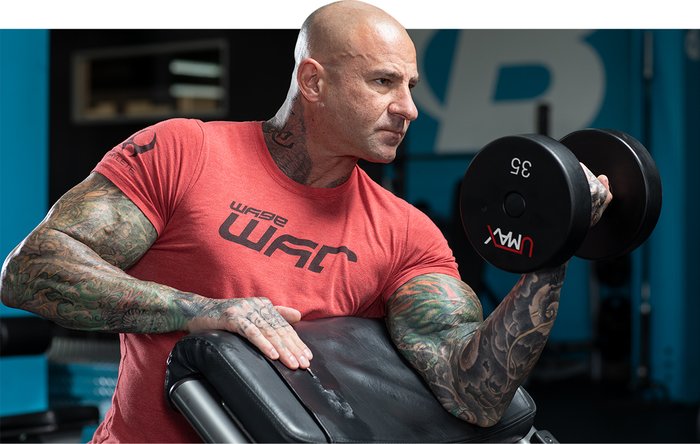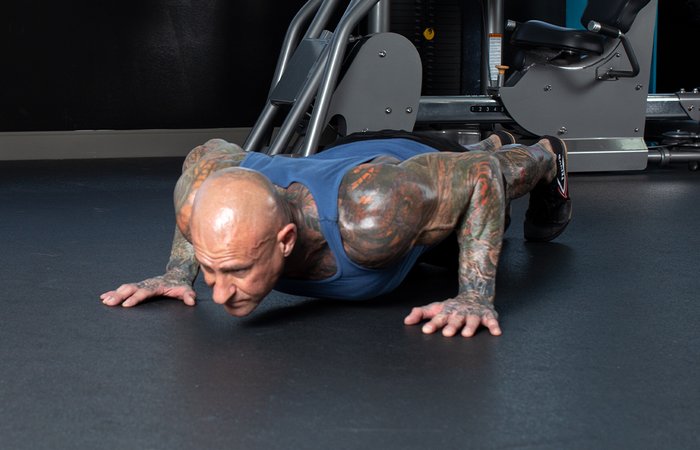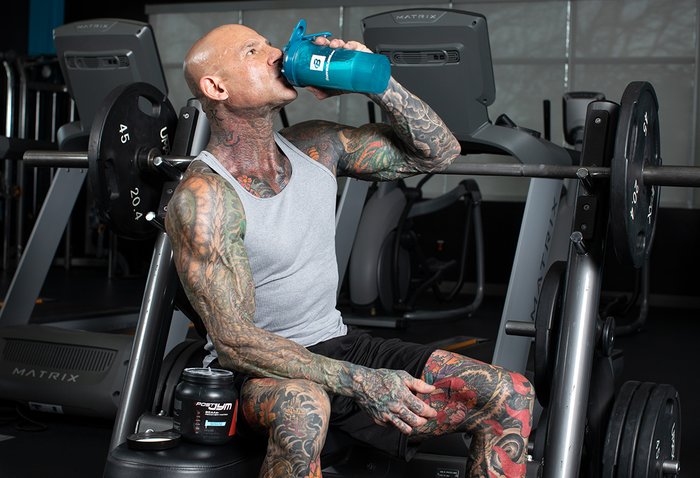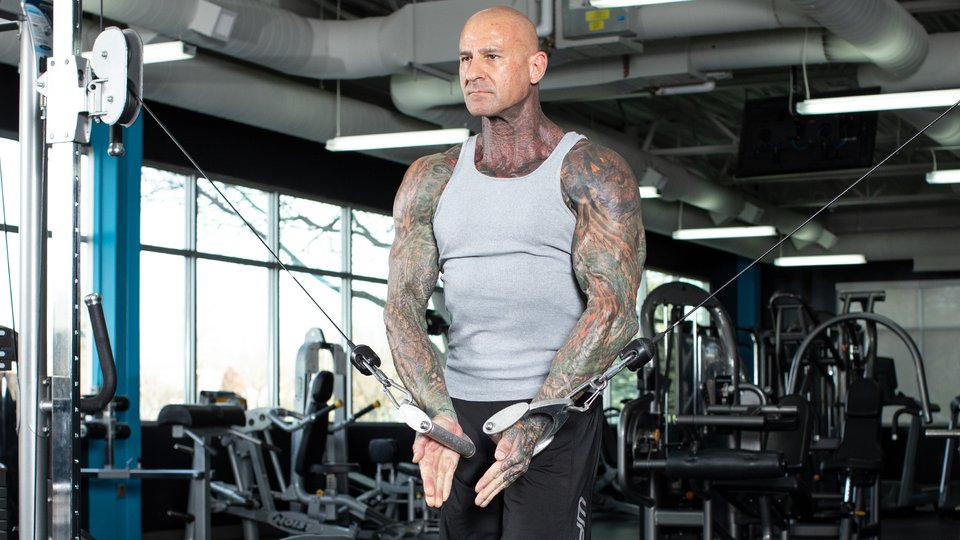Keeping your immune system strong is important, especially if you do intense workouts. And it doesn’t just mean taking vitamin C. There are a lot of lifestyle steps you can take to boost your body’s immunity and stay healthy.
As you may notice, some of these steps are the same ones I recommend for being fit, muscular, lean, and maximizing performance in the gym—it all goes hand in hand. Yet each of these guidelines has been proven to enhance immune function in some manner, whether it’s through nutrition, warding off germs, or reducing stress on the body.
What Is the Immune System?
The immune system is one of the human body’s main systems (others being the nervous system, muscular system, skeletal system, digestive system, reproductive system, and so on). Along with the lymphatic system, the immune system defends against pathogens (like viruses) that can harm the body and cause illness or even death.
There are two major subsystems of the immune system: the innate and adaptive systems.
The innate system includes basic barriers that prevent pathogens from crossing them and doing damage in the body—barriers like skin, hair, mucous membranes, the linings in the mouth and nostrils, even the wax in our ears. These barriers are the body’s first line of defense, so to speak, against pathogens. We’re born with these innate immune system mechanisms, hence the name “innate.”
The adaptive (or acquired) immune system, on the other hand, is specific to particular pathogens. Vaccinations, for example, fall under this system, where you’re given a shot that will protect you from a certain disease. Unlike the innate systems, you’re not born with adaptive immunity, you have to acquire it. This is why I’ll be focusing mainly on the adaptive system in this article—because it’s the one you can improve with certain practices and lifestyle choices, which I’ll cover in the 10 steps.
How Does Exercise Affect the Immune System?
Chronic stress will wreak havoc on the immune system, and that stress can come from any number of sources—work, relationships, finances, severe heat or cold, and, yes, exercise.
Training is a double-edged sword. Moderate-intensity exercise improves the adaptive immune system by way of how it responds to and fights pathogens. Intense exercise, however, can compromise the immune system. Exercise is like a lot of things: Too little is bad, but so is too much.

You may be wondering: If intense exercise compromises the immune system, why do you purposely design JimStoppani.com workout programs to be intense?
The answer is simple: Yes, intense training compromises the immune system, but only acutely—meaning in the hours following a hard workout. (This is why I wouldn’t recommend going to a germ-ridden public place like the mall or the airport right after training.) But if you take measures to properly recover from your workouts, your immune system will bounce back and become stronger because of it.
It’s when you don’t recover that your immune system remains in a compromised state and you find yourself sick all the time, running low on energy, and losing strength and muscle mass.
10 Steps to Support Your Immune System
The hour or so you spend in the gym training intensely will deliver a blow to your immune system. Here’s what to do the other 23 hours to build your adaptive immunity back up.
1. Wash Your Hands Frequently
First of all, make sure you wash your hands as often as possible. Washing your hands with warm water and soap for at least 20 seconds is the simplest, most effective thing you can do to avoid illness.
Wash your hands when you’re out in public, when you return home, after the gym, and after interacting with another person. Make sure your kids (if you have any) are washing their hands frequently, too.
2. Follow the 30/60 Rule
Add moderate-intensity exercise to your day with my 30/60 rule: For every 30 minutes you spend sitting, stand up and do at least 60 seconds of physical activity. This can be anything you want: walking, jogging, jumping jacks, calisthenics like push-ups or sit-ups, stretching, etc.

If the activity is only moderately intense, that’s fine; from an immunity standpoint, that’s actually preferable. Doing these intermittent bouts of exercise throughout the day will help keep your immune system strong and fend off infection and disease.
3. Get Plenty of Sleep
Logging adequate sleep every night is critical for enabling a full recovery when doing an intense program, like any of mine on JimStoppani.com. Sleep is also absolutely critical for an optimally functioning immune system. We know that when people are sleep deprived, their immune systems take a hit.
The general recommendation for sleep is 8 hours a night. Some people need more and some less, but 7-9 hours is a good place to start. Make the best decision for yourself as to how much sleep you need every night.
4. Practice Meditation and Mindfulness
Meditation is well-known for helping reduce stress, which is exactly why it’s beneficial for the immune system—because chronic stress will compromise immunity in a big way.
Try to find time every day for some form of mindfulness practice. That can be yoga, traditional meditation (try an app), or just carving out a few minutes during your day for quiet time. At the very least, start by taking 2 minutes in the parking lot before work or the gym to close your eyes and breathe deeply before getting after it.
These slivers of time throughout the day may be tough to carve out, but they’re worth it. Meditation and mindfulness are going to enhance your workout, reduce your stress, and lead to better immune function.
5. Utilize Intermittent Fasting
Intermittent Fasting (IF) is when you go an extended period of time with no food and no calories—basically just water and certain zero-calorie beverages like coffee and tea.

Research has shown that IF can benefit health in a number of ways, including immunity. One study looked at a Ramadan-style fast of 14 hours a day and found that, after 30 days, subjects’ bodies better metabolized glucose, stored less fat, burned more fat, and improved insulin sensitivity. The scientists also found that subjects’ immune systems were enhanced.[1]
If you want to give your immune system a boost, consider incorporating IF. Personally, I’ve always found that I almost never get sick when I’m fasting. You may find you like the 16-8 (or 18-6) method so much that you want to stick to it long-term.
6. Eat Ample Protein
The immune system is literally a system of proteins. Most of them are functional proteins like hemoglobin, which carries oxygen. It’s because of these functional proteins in the immune system that we need ample protein in our diets.
Protein intake is especially important for those who train with weights, because the muscles also need those amino acids to rebuild themselves. People who train should consume at least 1 gram of protein per pound of body weight per day. Personally, I typically shoot for 1.5 grams per pound.
My go-to whole-food protein sources are beef, chicken, fish, turkey, eggs, and dairy. I also use my protein blend Pro JYM on a daily basis (especially before and after workouts) to make sure I’m hitting that 1.5-gram total and to maximize muscle protein synthesis.
7. Consume Fast Carbs Post-Workout
Post-workout carbs decrease immunosuppression that comes from hard training. We’re mainly talking about cortisol, a major stress hormone. When you train intensely, you stress the body, which makes cortisol rise and immune function go down.
The goal after training is to return cortisol to normal levels, and that’s where fast-digesting carbs come into play. When fast carbs are consumed either during or immediately after training, muscle glycogen is restored, cortisol levels decrease, immune function improves, and more water enters the muscles, creating a bigger pump and increasing muscle protein synthesis.
Post-workout carbs also improve insulin response. And what does that do? It drives things like creatine and carnitine into the muscles, which is critical for recovery. This is why I have two different post-workout products: Post JYM BCAAs+ Recovery Matrix, which contains nutrients like creatine, l-carnitine, BCAAs, beta-alanine, and betaine; and Post JYM Fast-Digesting Carb (Dextrose), to bring those Recovery Matrix ingredients into the muscles so they can do their work.

8. Get Your Omega-3 Fats
If you want to boost your immunity, increase your healthy fats. Specifically, omega-3 polyunsaturated fatty acids, a potent “immunonutrient” that’s known to have positive effects on the immune system.*
Salmon and other fatty fish are great sources of omega-3s. But you’d have to eat an awful lot of fish to reach the amount you need for optimal health. That’s why I created my Omega JYM fish oil, which provides ideal daily amounts of omega-3 fats—1,500 milligrams each of DHA and EPA, and 300 milligrams of DPA—in just four capsules.
9. Mind Your Micronutrients
There are a number of specific vitamins and minerals critical for immune system health, including vitamin A, vitamins B6 and B12, vitamin C, vitamin D, vitamin E, folic acid (folate), copper, iron, selenium, and zinc. Your immune system can take a hit with even a marginal deficiency in any of these micronutrients.
Zinc and selenium, for example, tend to be quite low in people who train intensely. This is why I created both Vita JYM (my multivitamin/multimineral supplement) and ZMA JYM (zinc, magnesium, and vitamin B6 in precise amounts)—to erase deficiencies like these in hard-training individuals and help keep you strong and healthy.*
10. Go with Glutamine
The essential amino acid glutamine is another immunonutrient (like omega-3 polyunsaturated fatty acids). It’s also a fairly polarizing supplement, mainly because most people don’t understand what glutamine is and what it does in the body. So, let me clear up the confusion.
Glutamine is one of the highest-level amino acids in the body, and it’s a critical energy component of the immune system. As I said earlier, the stress of intense training delivers a blow to the immune system. The immune system is happy to pull glutamine from your muscles. The problem is, when this happens, muscle endurance drops. Muscle protein synthesis (MPS) is also compromised when glutamine levels are low, which is the last thing you want after a workout.*
These reasons are exactly why you want to supplement with glutamine after your workout—to replenish what the immune system “stole” from your muscles so you can maximize MPS for greater strength gains and muscle growth.*
*These statements have not been evaluated by the Food and Drug Administration. This product is not intended to diagnose, treat, cure, or prevent any disease.
References
- Chaouachi, A., Leiper, J. B., Chtourou, H., Aziz, A. R., & Chamari, K. (2012). The effects of Ramadan intermittent fasting on athletic performance: recommendations for the maintenance of physical fitness. Journal of Sports Sciences, 30(sup1), S53-73.
For more articles about training, nutrition, and supplementation, check out JimStoppani.com.
